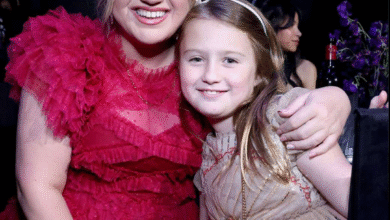“It Was the Only Way to Save My Family” – Mike Tyson’s Shocking Mansion Sale Explained
OPINION: This article may contain commentary which reflects the author's opinion.
At the peak of his career, Mike Tyson had everything—fame, fortune, and a sprawling mansion that symbolized his larger-than-life persona. But few knew that years later, that same mansion would become a symbol of something far more personal: the sacrifices he was willing to make for the people he loved.
In the early 2000s, Tyson stunned the world when he sold his lavish 52-room mansion in Ohio. At the time, headlines focused on his financial troubles—his bankruptcy filing, legal battles, and the end of his boxing empire. But in a recent interview, Tyson offered a different perspective, one that hadn’t been fully revealed until now.
“It wasn’t just about the money,” Tyson said. “I was losing more than my career—I was losing my family. That house was a palace, but inside, things were falling apart.”
The mansion, complete with gold-plated sinks, a private nightclub, indoor pool, and tiger cages, had become a fortress of isolation. Tyson admitted that the size and scale of the property fed into a lifestyle that pulled him away from his children, his wife, and ultimately himself. “There were rooms in that house I hadn’t stepped in for years,” he said. “I had a kingdom, but no connection.”
As his relationships strained and personal demons resurfaced, Tyson realized he had to make a radical shift. Selling the estate wasn’t just about reducing expenses—it was about cutting ties with the image he had built, the one that nearly destroyed him.
“I told myself, if I really want to be a husband and a father, I have to start living like one,” he said. “I didn’t need 50 rooms. I needed one kitchen table where we could all sit and talk.”
Tyson eventually relocated to a more modest home, and with the help of therapy, sobriety, and support from his wife Lakiha Spicer, he began rebuilding his life from the ground up. He shifted focus from the spotlight to family, working on his children’s education and building emotional bridges that had long been neglected.

“It was hard letting go of that house. But it was harder letting go of the people I love,” Tyson reflected. “That sale wasn’t the end. It was the beginning of something better.”
Today, Tyson is a different man—still fierce, still iconic, but far more grounded. He runs his cannabis business, records his podcast, and spends most evenings at home with his wife and kids. And while fans still remember the mansion that once defined his wealth, Tyson remembers it as the place he walked away from—for all the right reasons.
“I lost a house,” he said with a smile. “But I got my family back.”



